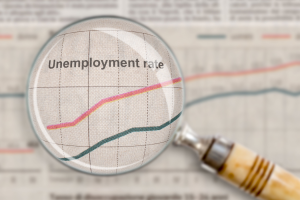
August began with stocks reaching a year-to-date high. But then daily declines ensued, attributing to factors like inflation and tech stock valuations. This volatility prompted retail investors to seek safer options like treasuries and money market funds, with short-term fixed-income options returning around 5%. For those seeking higher yield and stability, reliable dividend stocks like these stock gems below can be excellent passive income streams in the future.
Realty Income (O)

Realty Income (NYSE:O) has consistently paid monthly dividends for 54 years, making it a reliable choice. Despite REIT challenges due to rising interest rates, now could be a good time to invest in O stock with a 5.18% yield. Although its dividend growth averaged 3.73% annually in the past five years.
While valid concerns exist, they may be exaggerated. Realty Income mainly holds single-tenant properties under triple-net leases, easing landlord responsibilities. Tenants like 7-Eleven, Dollar General, and Walgreens add stability. While many REITs cut distributions in the pandemic, Realty Income raised its payout contributing to its record of 121 dividend increases since 1994 and 637 consecutive monthly payments. A $3.07 annualized payout per share offers a 5.2% yield with monthly dividends.
That said, don’t presume poor future returns for O stock. With a 5.18% yield and potential price rebound after interest rates normalize, investing now might yield profits.
Devon Energy (DVN)

Despite ongoing debates, the return to office work could boost traffic volumes and companies pushing hybrid schedules may benefit energy firms like Devon Energy (NYSE:DVN). Devon presents a strong case as a speculative dividend stock. With a forward yield of 6.1%, it surpasses the sector average of 4.24%. The company’s payout ratio at 43.79% indicates confidence in sustained yield.
Devon’s quarterly dividend of $1.13 per share offers a remarkable yield of nearly 10%, a rarity in solid companies. DVN stock is undervalued due to falling crude oil prices. Down nearly 20% year-to-date, DVN’s P/E ratio at 5 is much lower than the S&P 500 average of 22. With a 52-week low, this presents an enticing opportunity for patient investors seeking high dividends.
Despite Federal Reserve policy risks, Dev
on Energy shows potential as a high-yield dividend stock. Despite energy sector challenges, DVN remains a solid long-term investment. As society normalizes, office returns could boost traffic volumes and benefit DVN and other energy firms.
Fortis (FTS)

Fortis (NYSE:FTS) is Canada’s largest investor-owned utility, dominant in North America and the Caribbean. Stable regulated assets, solid financials, and a C$22.3 billion capital plan for 2023-2027 with 4-6% dividend growth showcase its resilience.
The company unveiled a 5-year C$22.3B capital plan, expecting 6.2% annual rate base growth with a dividend target of 4-6%. Utilities, including Fortis, maintain stable dividends even amid earnings declines. Fortis maintains steady growth, with 50 years of consecutive dividend increases, across economic cycles due to stable demand and regulated operations, ensuring stable cash flow. Its consistent 5% annual bottom line growth over a decade contributes to reduced volatility compared to growth stocks.
With a 4% yield, FTS stock exemplifies the high dividend nature of utilities. Fortis allocates about 52% of net income as dividends, surpassing the 20% market average. The company plans 5% annual dividend growth for years, offering stability in uncertain times.
On the date of publication, Chris MacDonald did not have (either directly or indirectly) any positions in the securities mentioned in this article. The opinions expressed in this article are those of the writer, subject to the InvestorPlace.com Publishing Guidelines.






